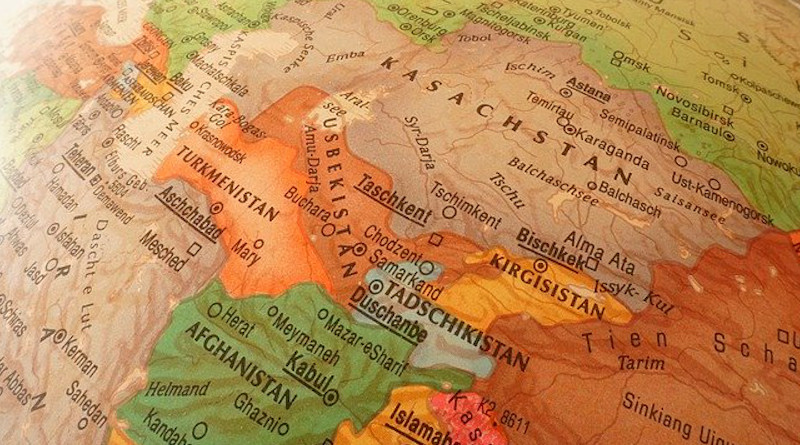Withdrawal Of US Troops From Afghanistan And The Future Of Central Asia – OpEd
The United States and the NATO alliance have officially begun withdrawing troops from Afghanistan. US President Joe Biden says this is the beginning of an end to the war. They have already handed over control of Bagram Airfield, 25 kilometers north of the capital Kabul, to the Afghan government. Earlier this year, Biden set a deadline of September 11 for the withdrawal of US troops from Afghanistan, but the BBC reported on July 9 that the withdrawal would be completed by August 31. But looking at the activities of the army, it seems that they will not take that much time. Analysts expect the full withdrawal to be completed by mid-July.
Meanwhile, the event of the withdrawal of US troops has raised concerns in Central Asia severely. Anxiety is especially prevalent in Pakistan, Iran, China and India. The root cause of anxiety – Security Issues. In the last twenty years, the United States has spent nearly two and a half trillion US dollars on Afghanistan. Central Asian countries are well aware of this. Now, their only concern is that Afghanistan will once again become a pool of hell and that heat will be felt in their interest as well. In a word, the security of the mentioned countries will be disrupted. In this case, these countries have to bear the burden of unreasonable extra budget to ensure security.
Patterns of security breaches are already emerging. The Taliban have already seized dozens of districts in Afghanistan. Some of the major cities have also been occupied. A report released by the United Nations in June states that 80 percent of Afghanistan is now under Taliban control. Reuters quoted that, the Taliban is claiming it had taken over 75 percent of the territory of Afghanistan last week. However, the current government of the country has rejected this allegation. Afghan President Ashraf Ghani believes – government forces have the capability to deal with the militants. Speaking at the White House on July 8, US President Joe Biden also said that, Afghan forces have the power to defeat the Taliban.
However, in the wake of the Taliban’s continued attacks, many members of Afghanistan’s security forces have reportedly sought refuge in neighboring countries. And the fear begins here! Tajikistan’s border guards say – 134 Afghan soldiers crossed the border a few days ago and took refuge in the country. Another 53 Afghan border guards and local troops have fled to Uzbekistan after being attacked by the Taliban in Afghanistan’s Shortepa district. On July 5, more than 1,000 Afghan troops crossed the border from Badakhshan province into Tajikistan.
The Taliban have reportedly taken control of several important border crossings in Afghanistan. This includes the Spin Boldak border post which is the main border post entering Pakistan. Taliban are also collecting tariffs on goods entering the country through border crossings that are now controlled by the them.
The Amu Darya and Panj rivers, which divide Afghanistan from Uzbekistan and Tajikistan, are expected to be captured by the Taliban in a few weeks. As the Taliban control this international border in Afghanistan, there is no doubt that there will be a large influx of refugees from Afghanistan to Central Asia and then to Russia and Europe. Many people have been forced to flee their homes due to the battle. About three lakh people have become homeless since the beginning of this year.
The United Nations High Commissioner for Refugees (UNHCR) says more people will be fleeing from Badakhshan, Kunduz, Balkh, Baghlan and Takhar once the Taliban take control of large rural areas. Some people are fleeing to the villages or to the surrounding districts and then returning to their homes. But many people are living without a home for a long time. The AFP news agency reports that, Taliban attacks have forced many Afghan refugees and government troops to flee across the border into Tajikistan.
For all these reasons, Russia is very concerned. Russia once secretly supported the Taliban as a way to weaken US war efforts. That Russia now fears widespread instability in Central Asia and beyond. Russia’s Defense Minister Sergei Shoigu has expressed concern that “by the end of this year, the command of the Central Military District will have to at least two armies ready with modern warplanes.”
China, which once supported the Taliban, is no less worried at the moment. The resurgence of the Taliban could disrupt Chinese President Xi Jinping’s Belt and Road Initiative (BRI). Not only that, Islamic extremists in China’s western Xinjiang province could become a threat to China as well.
Eventually, Afghanistan is likely to be a source of poverty, mass migration and deep instability. And the countries of Central Asia will be at the forefront of these problems. China, Russia, India, Pakistan, Uzbekistan, Kazakhstan, Kyrgyzstan – all will possibly face serious instability. Diplomats have started rushing before the problem is revealed. A few days ago, the Uzbek foreign minister visited the United States to discuss Afghanistan and regional security. Meanwhile, Pakistan’s Prime Minister Imran Khan has said his country will work together for peace in Afghanistan, but will not allow US forces to establish bases in Pakistan.
*Azimul Haque, Software Engineer and Dhaka based Freelance Journalist

